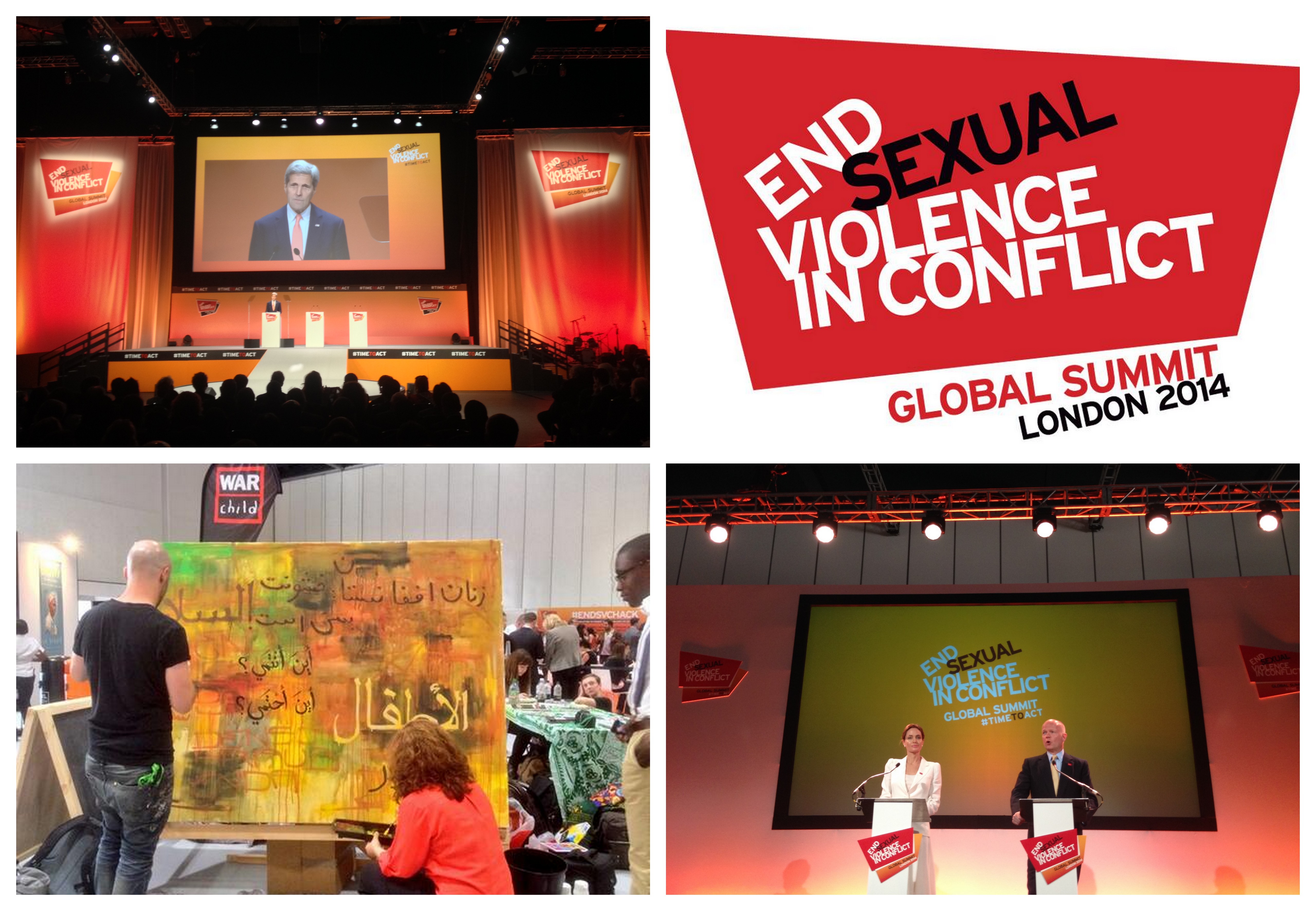 |
The Global Summit to End Sexual Violence in Conflict concluded in London last week, with 155 states endorsing a joint declaration pledging to work to prevent and punish sexual violence.
The four-day summit saw countries from across the globe pledge to improve the response and support to victims of sexual violence and their access to justice, as well as exclude such crimes from amnesty provisions.
See the full declaration here.
As public exhibitions, theatre productions and discussions took place, ministers from around the world gathered to discuss the issue of sexual violence in conflict and measures that could to taken to prevent rape, protect the victims and punish the perpetrators. The key initiative launched by the British government was the 'International Protocol on the Documentation and Investigation of Sexual Violence in Conflict’.
US Secretary of State John Kerry delivered the closing keynote speech, where he stated the world could "cannot tolerate peace agreements that provide amnesty to rape”.
See our earlier post: Kerry: ‘we will not tolerate peace agreements that provide amnesty to rape’ (13 June 2014)
Some countries though, refused to endorse the declaration, with notable omissions including Syria, North Korea and Sri Lanka.
British Ministers Hugo Swire and Mark Simmonds expressed disappointment at Sri Lanka’s absence, irking the Acting Sri Lankan High Commissioner Neville de Silva in London who said the criticism was "surely misplaced".
Though Sri Lanka did not attend the summit, the issue of sexual violence on the island featured throughout the public exhibitions, such as a play from ‘Ice and Fire’ portraying three true stories of male rape survivors from Bosnia, the DRC and a Tamil from Sri Lanka.
However, there was criticism that Sri Lanka was not included on the summit’s official agenda, with human rights activist Bianca Jagger writing,
“I cannot fathom why the UK government is not denouncing the Sri Lankan government's atrocities. Why are they not demanding that the perpetrators be brought to justice? Why are they deporting survivors of torture and rape back to Sri Lanka, and endangering their lives?”
See our earlier post: Why is systemic rape of Tamils in Sri Lanka not on the Ending Sexual Violence in Conflict agenda asks Bianca Jagger (10 June 2014)
Her article came as the Canadian High Commission hosted an event highlighting sexual violence against Tamils, with excerpts of survivor testimony being read out by singer M.I.A and supermodel Cara Delevingne amongst others.
 |
See our earlier post: M.I.A calls for justice for Tamils raped by Sri Lankan military (12 June 2014)
The testimonies were extracts from a report entitled 'An Unfinished War: Torture and Sexual Violence in Sri Lanka 2009—2014', whose co-author Yasmin Sooka told the Tamil Guardian, that the abuses against Tamils were ‘systematic’ and ‘part of policy framework’.
See her full interview here:Sexual violence against Tamils ‘systematic’, ‘part of policy framework’ - Yasmin Sooka (10 June 2014)
British Foreign Secretary William Hague also said the UK would be investigating cases of Tamil asylum seekers being sent back to torture with Special Envoy for the UN High Commissioner for Refugees Angelina Jolie stating she would be meeting with Tamil refugees.
 |
See our earlier post: Hague to investigate Tamil asylum seeker torture reports (10 June 2014)
In the run up to the summit we revisited the mounting evidence which documents the widespread, systematic and on-going use of sexual violence by Sri Lanka's military against Tamils, that occurs with absolute impunity.
See our feature: Sexual Violence in Conflict: Sri Lanka (09 June 2014)
Also see more coverage below:
'Time to shatter culture of impunity' (10 June 2014)
International protocol launched to increase prosecutions of sexual violence in conflict (11 June 2014)
Breaking 'history's greatest silence' at sexual violence summit (11 June 2014)
Impunity encourages continuing use of rape as weapon against Tamils - NFZ (11 June 2014)
Sexual violence in conflict is a threat to int’l peace and security say world leaders, call for end to impunity (12 June 2014)
International pressure needed to stop impunity for crimes of sexual violence says UN High Commissioner for Refugees (12 June 2014)
Tamil Human Rights organisation presents on systemic persecution in North-East of Sri Lanka (16 June 2014)
